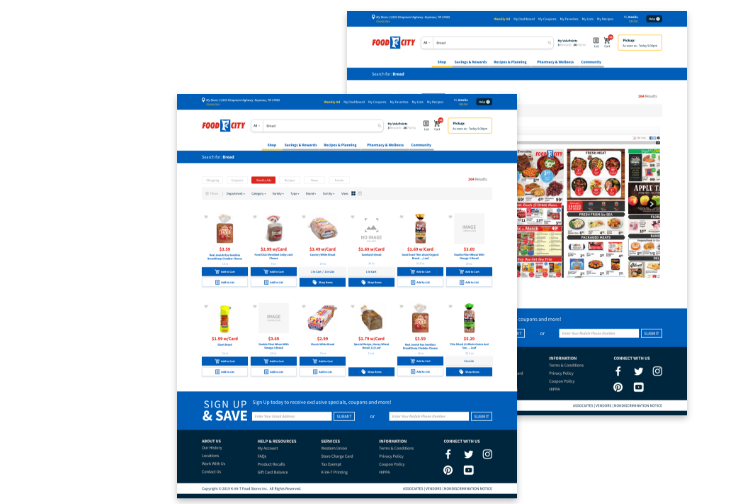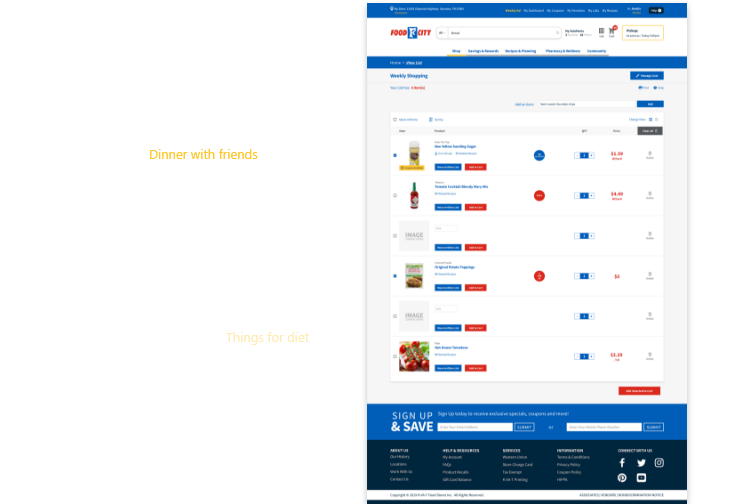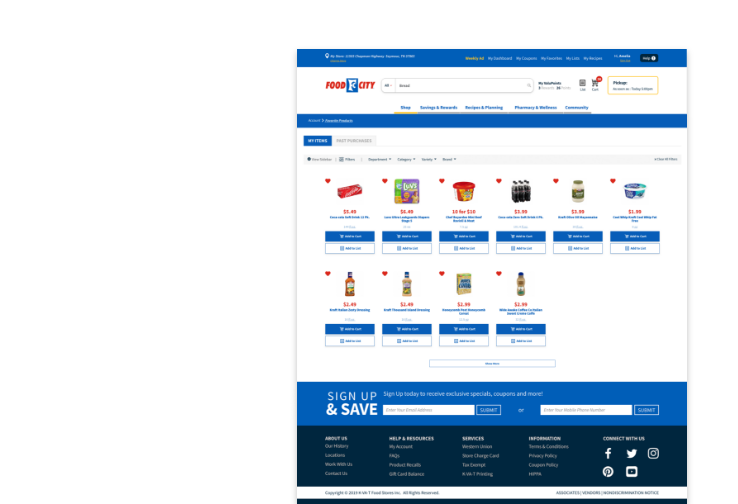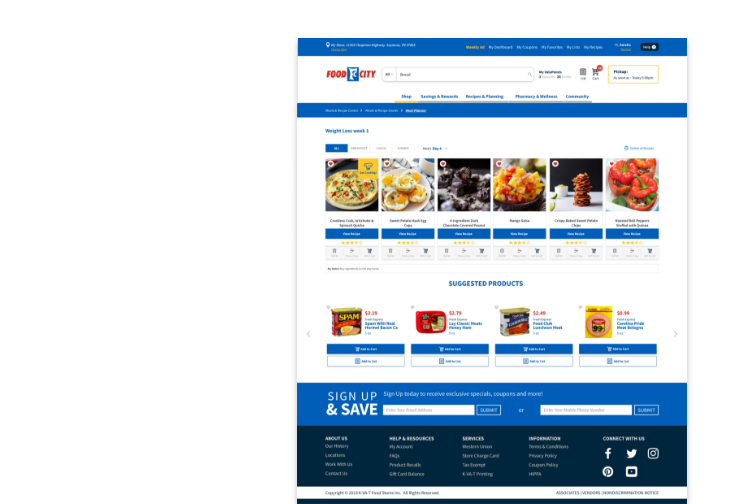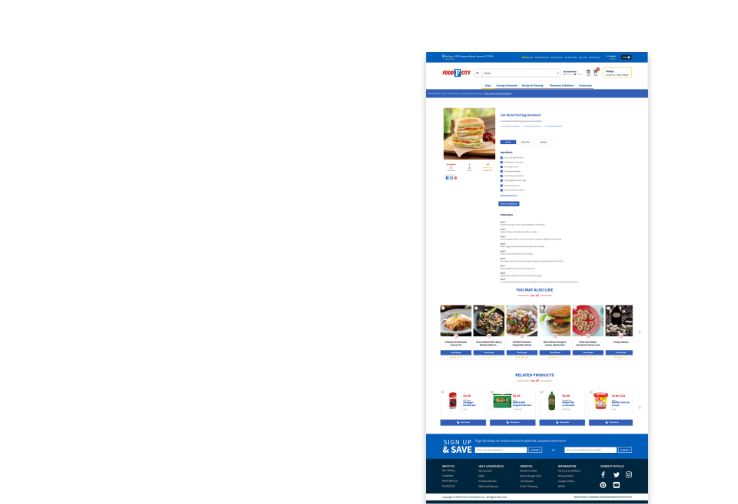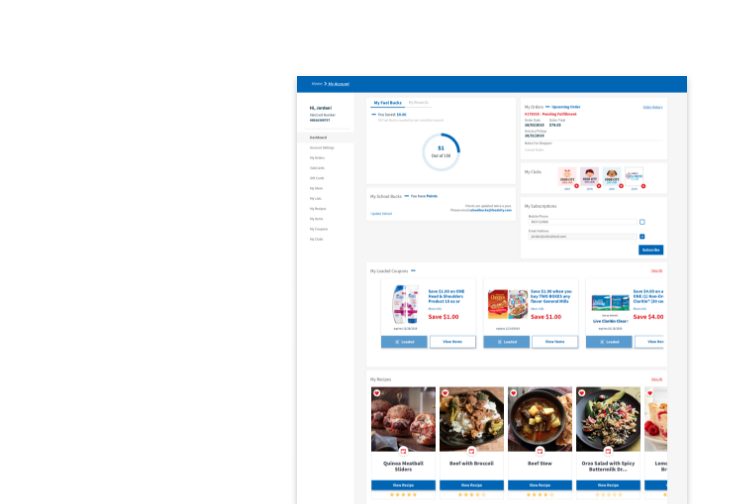
Wellness Club — Women’s Health Nutrition
Abingdon, VA. -
Thursday, May 1, 2025.
Written by: Nicole Pazdziorko, RDN, LDN Food City® Registered Dietitian
May is Women’s Health Month, and with Mother’s Day just around the corner, it’s the perfect time to focus on what helps women feel their best – starting with nutrition. Good nutrition starts with ensuring a balance of different food groups in the right portions to ensure energy and micronutrient needs are met; however, there are a few considerations that women in particular face when it comes to eating for their health.
Calcium
The first is a familiar one – calcium! Calcium is an essential mineral needed for our muscle function and heart health, but most recognize it for its role in building strong bones. This is especially important for women who are more likely to develop osteoporosis later in life. While bones are developing in childhood and adolescence, calcium needs are 1300 milligrams for both boys and girls, but girls tend to fall short of the recommended amount more than teenage boys do. Once they reach adulthood, calcium requirements decrease to 1000 milligrams daily. Calcium needs increase again around the age of 50 for women, as estrogen levels decline with menopause, affecting bone density.
To meet calcium needs, aim to include three daily servings of dairy products like milk and yogurt, or if you’re vegan or lactose intolerant, look for fortified milk alternatives like soy milk. Other sources of calcium include dark leafy greens, tofu and canned fish with its bones.
Vitamin D
Vitamin D assists calcium in maintaining bone health, because calcium relies on vitamin D for absorption. Without vitamin D, the body is required to rely on calcium stores from bones, accelerating development of osteoporosis. Sunlight is the best way to ensure adequate vitamin D during warmer months, but it is trickier during colder months.
To increase vitamin D intake through dietary sources, include egg yolks, fortified dairy products, fish with its bones, and mushrooms exposed to UV light.
Iron
Many women struggle with lower iron levels, which can lead to anemia, low energy levels, fatigue and weakness. Iron requirements for women can change depending on stage of life. During pregnancy, iron needs are higher, while after menopause they typically decrease.
To get adequate iron from food sources, focus on fortified cereals, lean meats, beans and spinach. Plant-based sources of iron aren’t quite as well absorbed as animal sources, but by pairing plant-based sources of iron with vitamin C you can optimize absorption! Some examples of this pairing would be iron-rich black beans with vitamin C-rich tomatoes, or spinach with strawberries or bell peppers.
Folate (Folic Acid)
Folate, or folic acid in supplement form, is an essential vitamin for women, especially during the reproductive years, because it is vital for healthy cell growth and development. A lack of folic acid during pregnancy can lead to birth defects. Women who are not pregnant should consume at least 400 micrograms per day of folate, while the recommendation is increased to 600 micrograms during pregnancy. Typically, a supplement with folic acid is recommended by a doctor or dietitian to meet needs, however, efforts should be made to also include food sources of folate, including fortified cereals and breads, leafy green vegetables, and oranges.
Protein
Protein plays a fundamental role in building and repairing tissues, producing enzymes and hormones and even supporting immune function. For women, adequate protein intake is vital for maintaining muscle mass especially as we age. After the age of 40 our muscle mass starts to decrease and our metabolism starts to slow down. To preserve lean body mass, it’s important as we grow older to pair a regular exercise routine with high quality protein sources. This will not only promote a healthy metabolism but can also help prevent risks of falls and fractures. Protein needs will depend on a variety of factors, but a good rule of thumb is to include a source at every meal and snack.
Focus on lean meats like chicken and turkey, fish and seafood, eggs and dairy products, in addition to lots of plant-based sources like legumes, quinoa, nuts and seeds. Incorporating a variety of these foods ensures a well-rounded intake of essential amino acids.
Focusing on a balanced diet that fits in these key nutrients for women can help support optimal energy levels and long-term health.
